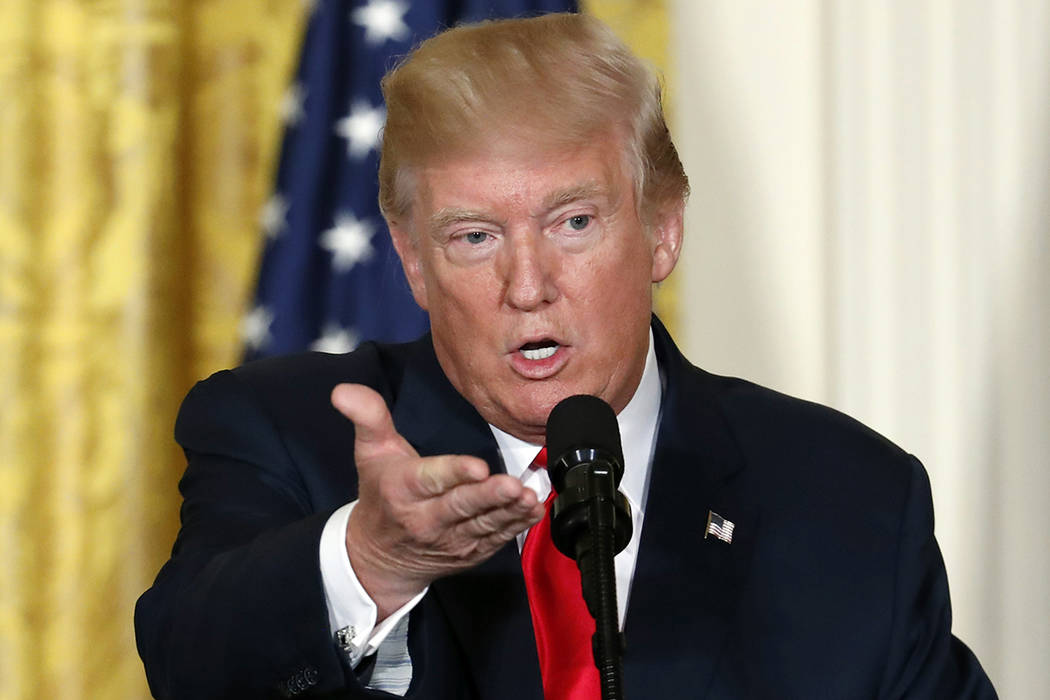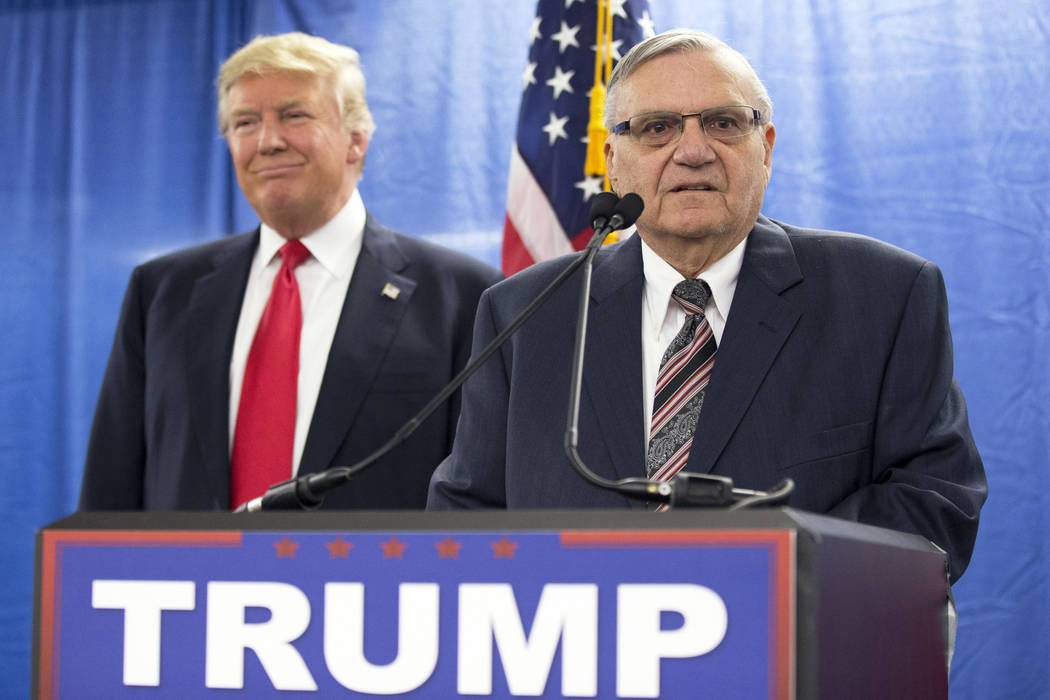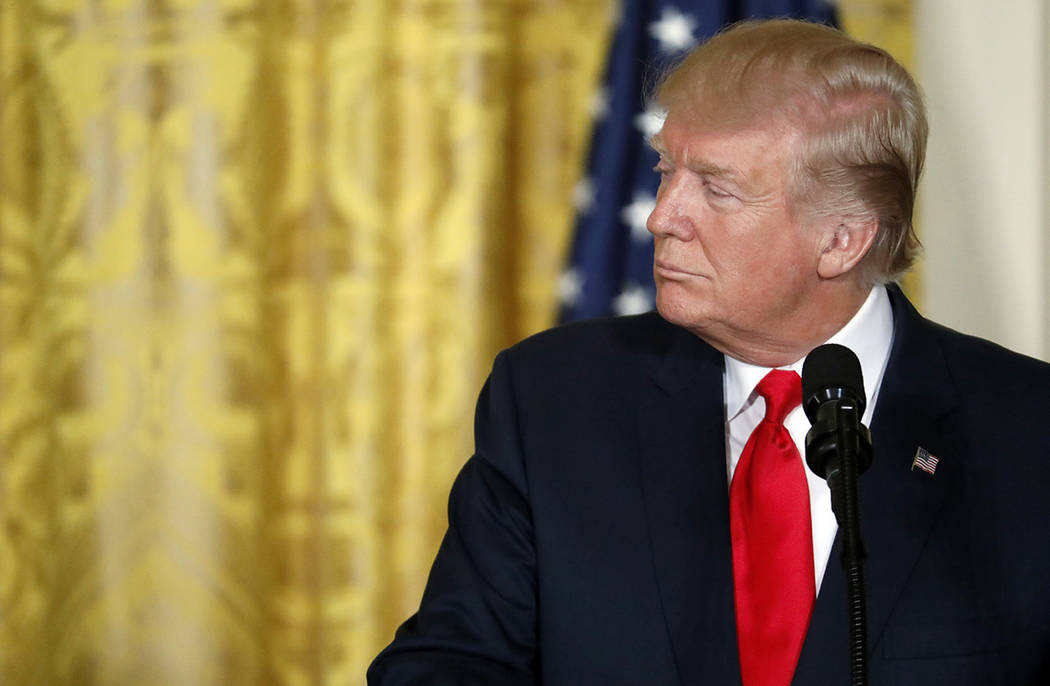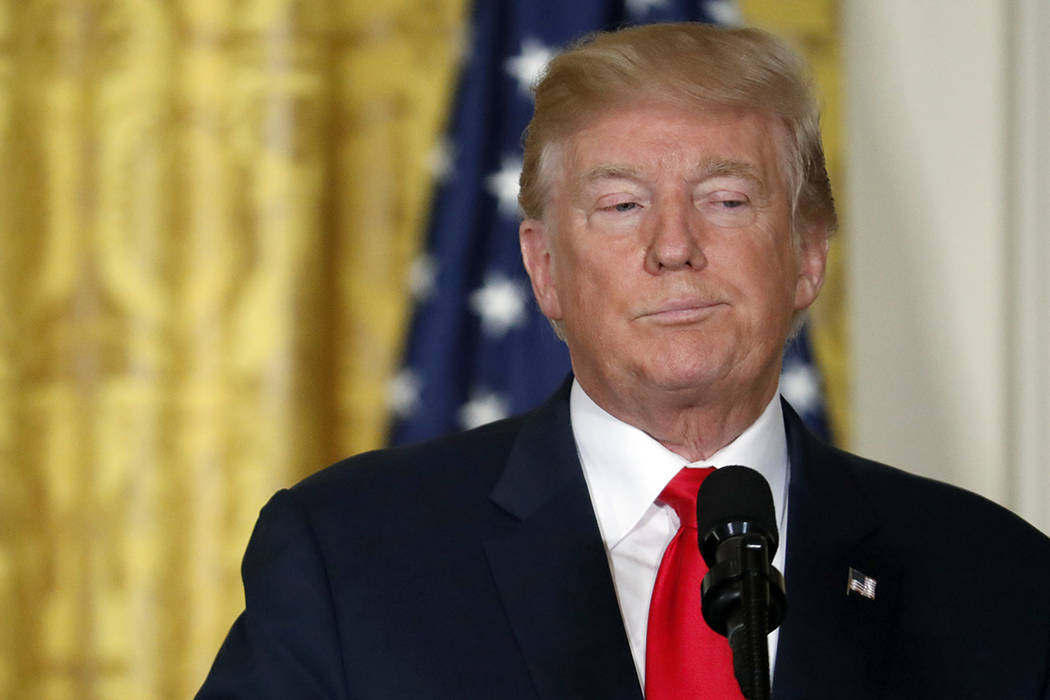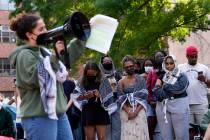Trump defends Arpaio pardon by reciting other controversial clemencies
WASHINGTON — President Donald Trump was expecting pointed questions at Monday’s press conference with President Sauli Niinistö of Finland about his pardon last week of former Arizona Sheriff Joe Arpaio — and he came prepared to argue his case.
Fox News correspondent John Roberts did not disappoint. He asked the president what he was thinking when he pardoned Arpaio, sheriff of Maricopa County from 1993 until last year, on a Friday night as a Category 4 hurricane hurtled toward the Texas coast.
Trump replied, “A lot of people think it was the right thing to do.” He also said the timing was not an effort to bury the story. Given all the hurricane coverage, “I assumed the ratings would be far higher than they would be normally,” he said.
Then the president recited a short list of the most-criticized pardons or commutations issued by recent Democratic presidents. He started with Marc Rich, the well-connected commodities trader who fled the country to evade prosecution on charges of tax evasion and illegal trade with Iran during the hostage crisis.
Trump also mentioned Weather Underground bomber Susan Rosenberg and cocaine trafficker Carlos Vignali — whose sentences were commuted by President Bill Clinton during his last day in office. Then he cited military secrets leaker Chelsea Manning and Puerto Rican terrorist Oscar Lopez Rivera — whose sentences President Barack Obama commuted. Trump did not mention any pardons or commutations by Republican presidents.
Political scientist P.S. Ruckman Jr. said he couldn’t remember another president using a similar defense “instead of listing people who are seen as widely deserving of pardons.”
But then he recalled a 2001 opinion piece by Clinton in the New York Times in which the former president called the exercise of clemency “inherently controversial.” As examples, Clinton cited Richard Nixon’s commutation of the sentence of union boss Jimmy Hoffa, who was serving time for jury tampering, President Gerald Ford’s blanket pardon of Nixon, President Jimmy Carter’s pardon of Vietnam war draft dodgers, and President George H.W. Bush’s pardon of six Iran-contra defendants.
Trump’s pardon of Arpaio, convicted of misdemeanor contempt of court in July for failing to follow a federal court’s order to stop apprehending people suspected of being in the country illegally, differs from Clinton’s most controversial acts of clemency. Those occurred safely after national elections; this occurred in the president’s first year in office and ahead of next year’s midterm vote.
Trump said he believed his decision to pardon the former sheriff was justified by what he characterized as the political prosecution of Arpaio. He also cited Arpaio’s record of service to the country in law enforcement and the military.
The Clinton and Obama clemency cases Trump mentioned were controversial with both the left and right. Clinton’s decision to reward Rich’s decision to flee rather than have his day in court rankled many in both parties. Obama’s commutation of Lopez Rivera’s sentence was jarring because the former terrorist failed to express remorse.
Arpaio also has not expressed remorse. Nor has he been sentenced, exhausted his appeals or formally requested a pardon. The Constitution does not require those steps, but when presidents follow established procedures, it is harder to accuse them of playing favorites.
University of California at Berkeley Law School Dean Erwin Chemerinsky took issue with Trump’s comparisons.
“What is different here is that Arpaio was held in criminal contempt of court,” Chemerinsky said by email. “It is troubling for me for a president to undercut the judicial enforcement power by pardoning someone who willfully violated a court order.”
But former federal prosecutor and Georgetown Law professor Bill Otis, a critic of what he sees overuse of the pardon, observed that the left frequently faults the U.S. justice system as “too punitive” and argues that “elderly people in particular are not a threat to the community because they’re very unlikely to reoffend.”
Having lost re-election, Arpaio has no occasion to reoffend, said Otis, adding, “I’ve never heard of them opposing clemency for an 85-year-old.”
Contact Debra J. Saunders at dsaunders@reviewjournal.com or 202-662-7391. Follow @DebraJSaunders on Twitter.
Other highlights
WASHINGTON — President Donald Trump declined Monday to tag Russia as a security threat, saying he would put "many countries" in that category instead.
"I consider many countries as a security threat, unfortunately, when you look at what's going on in the world today," Trump said after a Finnish broadcaster asked specifically about Russia and whether the president would consider it a threat to security.
The president commented during a White House news conference with Finnish President Sauli Niinisto after they met in the Oval Office.
Trump also said he and Niinisto had a "very good discussion" about the Arctic and black carbon, a major component of soot that's damaging the Arctic ice.
The Associated Press
Fact check
During Monday's press conference, Trump said that Arpaio "lost in a fairly close election. He would have won the election, but they just hammered him just before the election. I thought that was a very, very unfair thing to do."
The election was not close. According to the New York Times, Arpaio captured 44.4 percent of the vote. Retired Phoenix police sergeant Paul Penzone won with 55.6 percent of the vote.
— Debra J. Saunders



